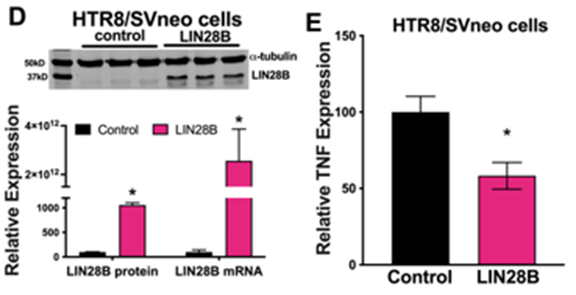Advantages:
- Discovered a novel mechanism of anti-viral defense during pregnancy
- Developed a novel method to predict susceptibility for viral infections during pregnancy
- Developed a novel method to treat interferon-related pathologies with maladaptive immune responses
Business Summary:
Viral infections during pregnancy cause devastating effects on fetal development and maternal health. Since defense against pathogens during pregnancy conflicts with tolerance to the allogenic fetus, the placenta has developed a unique antiviral defense. While somatic cells recognize invading viruses via pathogen-associated molecular patterns (PAMPs) to then initiate interferon (IFN) signaling, trophoblasts constitutively produce type III IFNs to provide anti-vital protection even in the absence of viral infection. However, an elevated anti-viral and maladaptive immune during pregnancy can increase the development of preeclampsia (PE).
USF researchers discovered that Alu double stranded (ds) RNA, which is a Retrotransposon (RTs) that is constitutively transcribed with mir-498(46) cistron, are responsible for the viral resistance of the placenta. They have shown that transcriptional activation of the mir-498(46) cistron in the placenta leads to an increased expression of antiviral type III interferon (IFN) and numerous IFN stimulated genes, in a miRNA independent manner and in the absence of viral infection. They discovered that while Alu dsRNA facilitates the intrinsic viral resistance of the placenta, RNA-binding protein LIN28B acts to counterpoise the potentially excessive immune response mediated by Alu dsRNA
Their research resulted in a novel method of predicting susceptibility/severity for viral infection during pregnancy by measuring circulating Alus by RT-PCR (blood, serum, plasma). In addition, they developed a novel method of preventing excessive/maladaptive Alu-mediated immune response which include numerous inflammatory diseases and pregnancy complications, by using LIN28B.

Protective role of LIN28B: LIB28B overexpression reduced TNF expression
Desired Partnerships:
- License
- Sponsored Research
- Co-Development